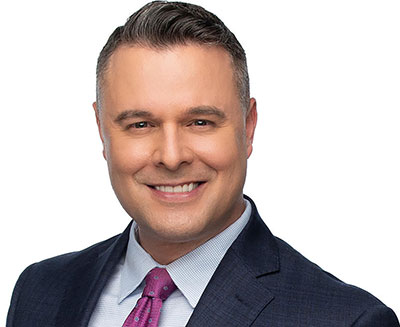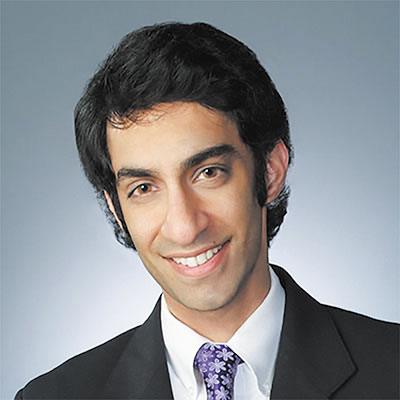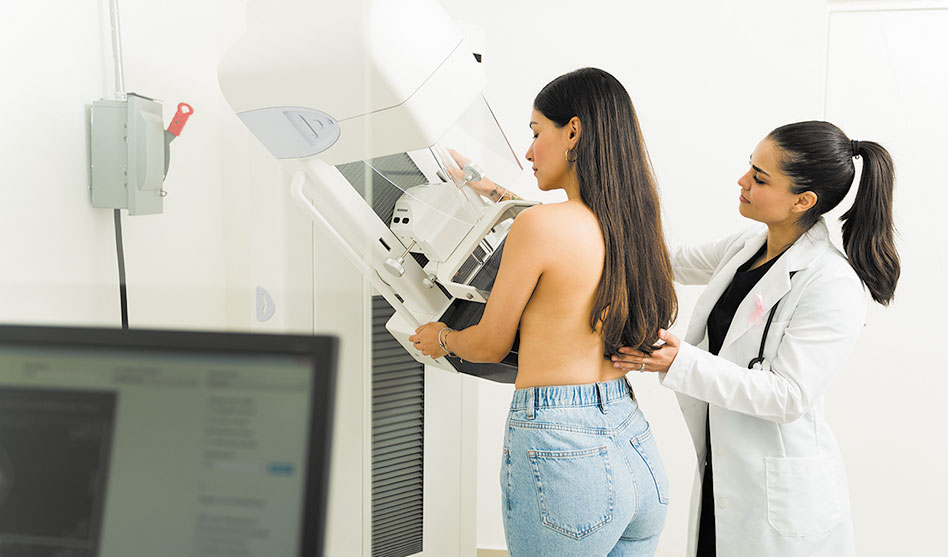American Cancer Society encourages regular screenings, good healthcare for the LGBTQ community
DAVID TAFFET | Senior Staff Writer
taffet@dallasvoice.com
CBS Texas Chief Meteorologist Scott Padgett will emcee Come Out Against Cancer, an event featuring Dallas Wings forward Emma Cannon with music from Los Angeles DJ Roland Belmares, happening May 10 from 7-10 p.m. at the Lorenzo Hotel.

Scott Padgett
The American Cancer Society put the event together to address the importance of cancer screenings in the LGBTQ community in North Texas. Early detection can save lives when it comes to fighting cancer, ACS notes. But numerous studies have shown that more than one-third of the LGBTQ community has experienced discrimination in a healthcare setting due to sexual orientation or gender identity. And of those who have dealt with discrimination, 75 percent say the negative treatment had an impact on their health care.
According to the American Cancer Society, one in two men and one in three women will be diagnosed with cancer sometime in their lifetime. And if you’re not diagnosed with cancer, chances are very high someone close to you will be.
Dr. Asad Dean is an oncologist with Texas Oncology, a presenting sponsor of Come Out Against Cancer. He said risk can be reduced with a good diet, exercise and not smoking. Recommended screenings can detect cancer early, and early detection means better chances for successful treatments, he said.
Also as a cancer preventive, Dean recommends the HPV vaccine. Current guidelines advise the shot up to age 45. It’s not that older people can’t contract the HPV virus, but the vaccine was developed as a preventive for teenage girls before they were sexually active, and its efficacy was extended to young men and then to those a little older.
The HPV vaccine can prevent cervical, vulvar and vaginal cancers in women and penile and anal cancers in men.
Along with the vaccine, Dean recommends regular PAP smears in women to detect cervical cancer.
Dean also suggests annual mammograms for women, with new guidelines recommending starting at age 40. “And,” he said, “every woman needs to know how to do a self-exam.” He said women should learn to do a breast self-examinations at younger ages. And if they feel a lump, they need to get professional care. He said doctors should be teaching their patients how to do a self-exam, but there are instructions with pictures online.
“The absence of having children can be a risk factor for breast and cervical cancers,” he said, which is an explanation for higher rates of breast cancer among lesbians and bi women.
But studies show another factor is disparities in access to healthcare. More than half of LGBTQ people report poor treatment by healthcare professionals making many in the community reluctant to seek care.
For men, Dean recommended a PSA screening annually, beginning at age 50, to detect prostate cancer for those with no family history. Start those annual screenings earlier if you have close relatives who have had prostate cancer. If the PSA level is elevated, see a urologist who may decide to biopsy the prostate, especially if they feel a lump.

Dr. Asad Dean
Colonoscopy is a preventive screening for colon cancer. Despite the cleansing process, Dean called it “worth it to check for polyps.”
If you are hesitant about having a colonoscopy and have no hereditary risk of colon cancer, Dean recommended non-invasive Colo-Guard. That method checks any blood found in a stool sample, and, Dean said, it is quite effective.
African-Americans are about 20 percent more likely to contract colorectal cancer and 40 percent more likely to die from it. Dean said there are a number of reasons for that, including being diagnosed later and discrimination in healthcare that includes being less likely to have a doctor recommend a screening.
Skin cancers are the most common forms of cancer, and basal cell and squamous cell cancers are the most common types of skin cancers. These two forms of skin cancer are generally caused by too much sun without sunscreen protection. Melanoma is considered the deadliest type of skin cancer because it tends to spread. A dermatologist can freeze spots on the skin while they’re precancerous and remove a mole to be biopsied.
A higher rate of smoking in the LGBTQ community leads to higher rates of lung, esophageal, kidney, bladder and other types of cancer. Preventing those cancers begins with not smoking.
Diet can also play an important role in preventing cancer: “Eliminate as much processed food as possible,” Dean said. “Eat less red meat and more fish and poultry, whole grains, lentils and beans.” Also eat more fruit and vegetables and less sugar. And physical activity is important.Those same changes to diet are also good for heart health.
“Weight is a risk factor for cancer,” Dean said. “Stay fit doing activities you enjoy doing. Keep your blood circulating. Work your heart.”
He suggested walking as one of the best exercises and about the easiest to monitor with apps on any cell phone.
Dean said money raised at Come Out Against Cancer will be used by the American Cancer Society not only to educate the LBGTQ community about screenings and prevention, but also to educate healthcare professionals about how to increase healthcare outcomes for their patients.



Great cause, thank you for posting this!